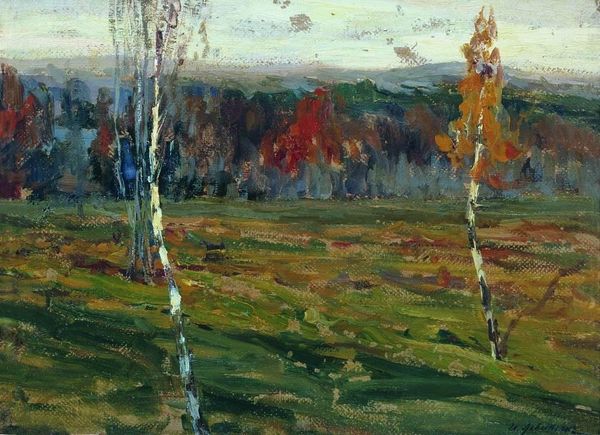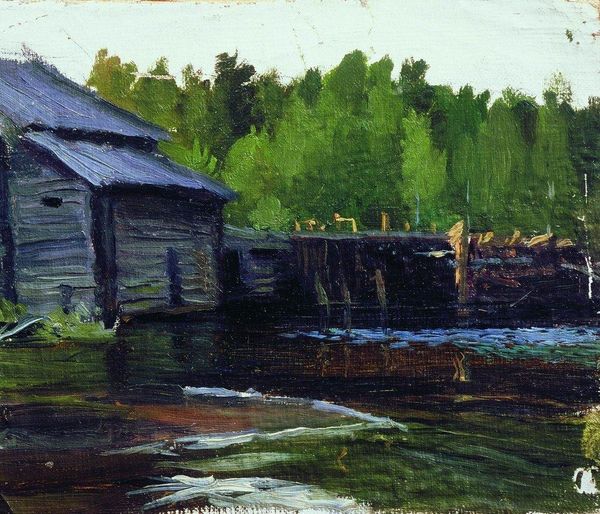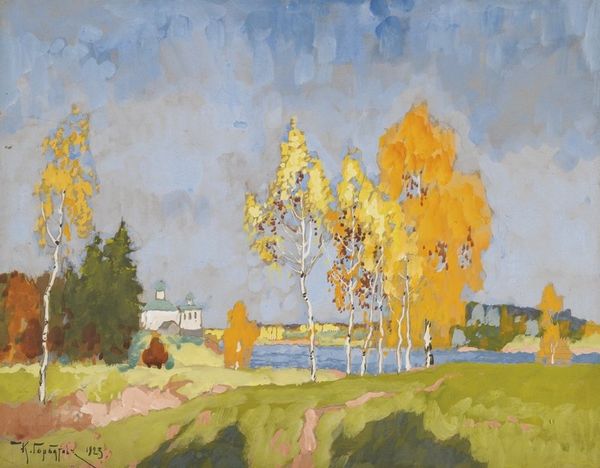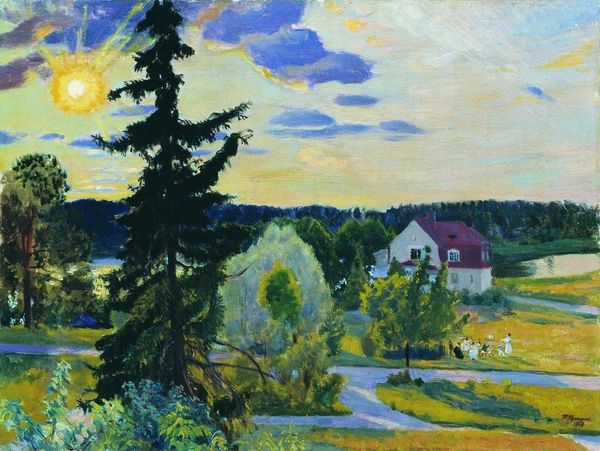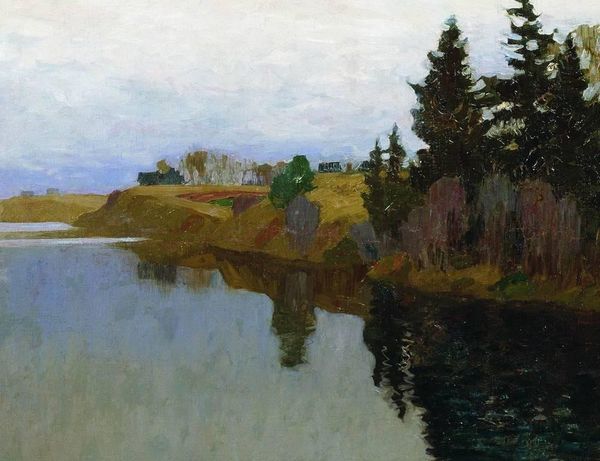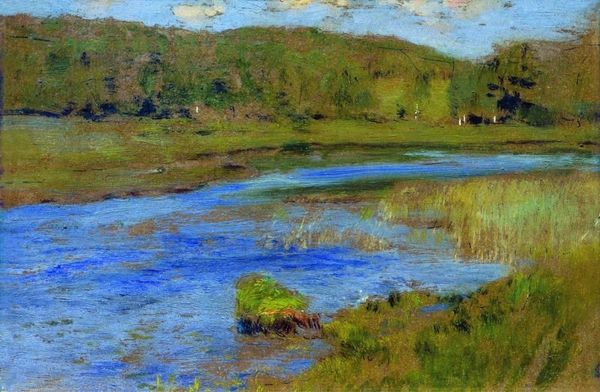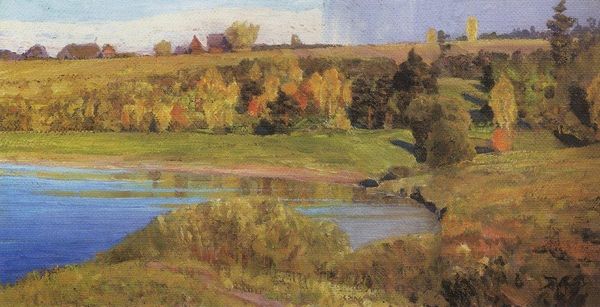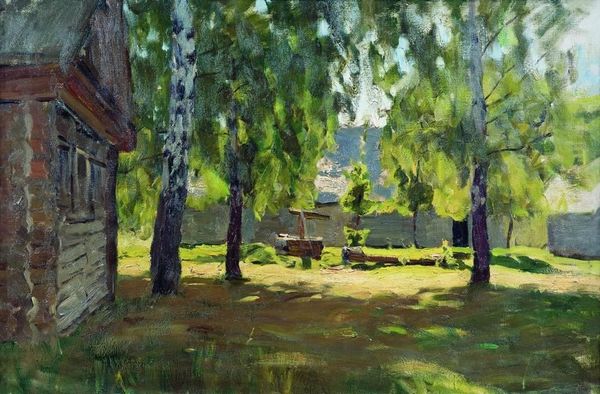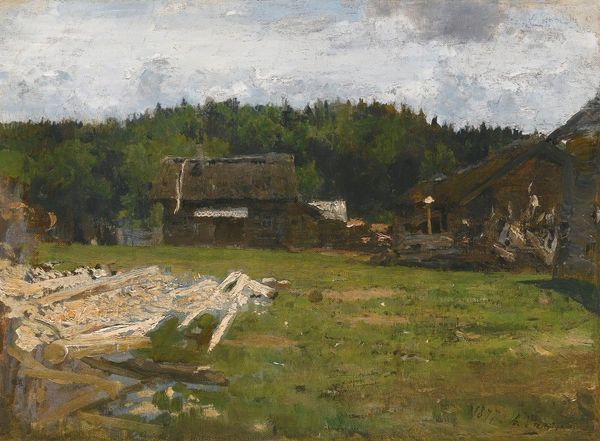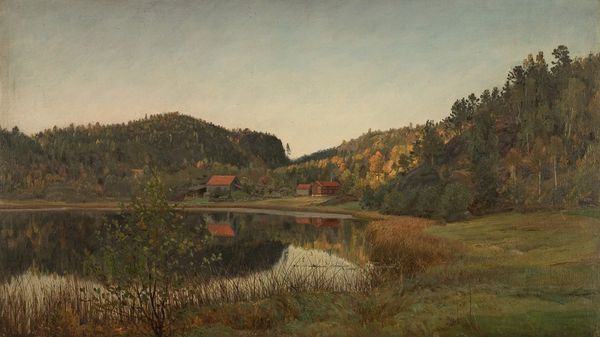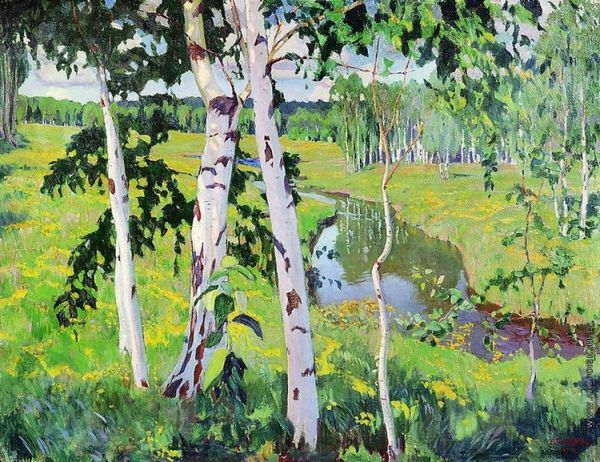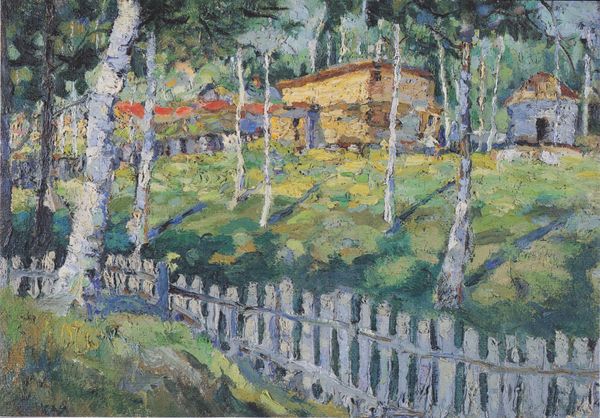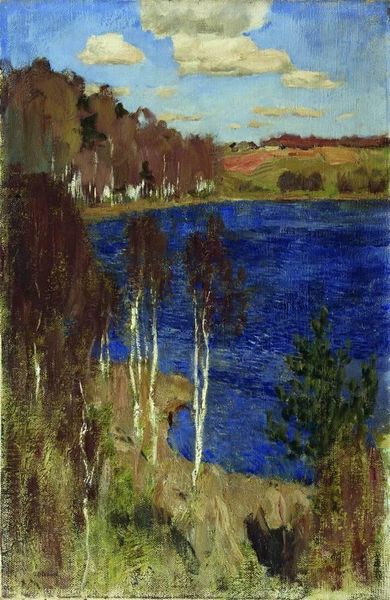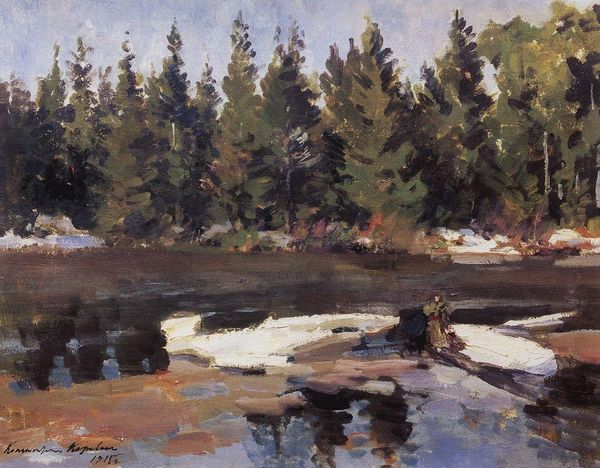
painting, oil-paint
#
painting
#
impressionism
#
oil-paint
#
landscape
#
impressionist landscape
#
oil painting
#
post-impressionism
Copyright: Public domain
Editor: Here we have Isaac Levitan’s oil painting, “Watermill.” I am really struck by the contrasts of light, how some of the landscape glows against the deeper greens and browns. What strikes you when you look at this work? Curator: The socio-political implications of representing the rural landscape in late 19th century Russia are quite interesting here. Levitan, like many of his contemporaries, wasn’t simply painting a pretty scene. The rise of landscape painting coincided with debates about national identity and the place of the peasantry. Consider, how does he present the relationship between humanity and nature here? Is the watermill romanticized, or is it depicted with a degree of realism? Editor: I think there's a bit of both, to be honest. It’s certainly not gritty realism, but it’s also not idealized in a purely romantic way. It feels… ordinary. The colors are muted. It is, dare I say, boring? Curator: Interesting you use that term. That “ordinariness,” if you will, has political weight. It is precisely this kind of unidealized, everyday view of rural life that spoke to a yearning for national authenticity, distinct from the more romanticized views pushed by the elite. Think about the rise of national museums at the time and how artists were shaping what “Russianness” meant. Where did a "boring" depiction of a mill fit in to that picture? Editor: I see what you mean. The “ordinary” landscape almost becomes a symbol for a sort of… shared national identity. Not idealized, but familiar. I never considered that! Curator: Exactly! And how might the lack of figures contribute to that idea? No individuals means the emphasis shifts to the collective, to the land itself. Editor: This changes my entire perspective of "Watermill!" It’s so much more than just a landscape painting. Thanks! Curator: Absolutely! It shows the power of visual culture to communicate complex ideas about society and nationhood.
Comments
No comments
Be the first to comment and join the conversation on the ultimate creative platform.
